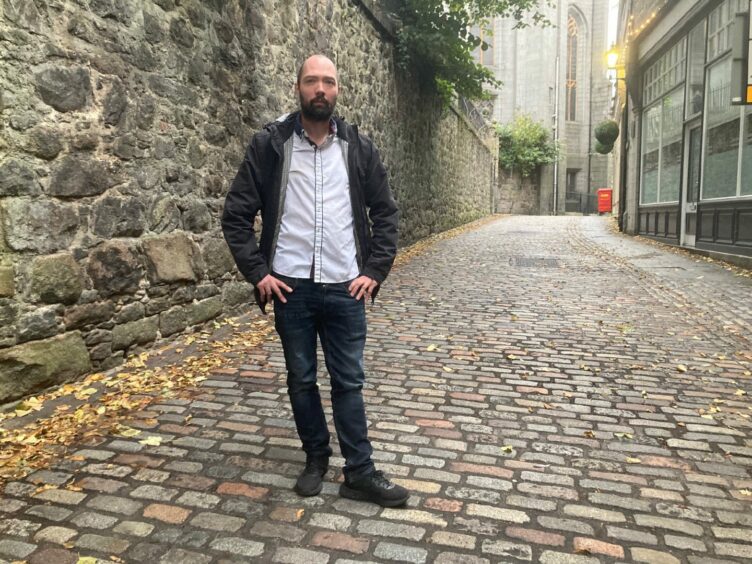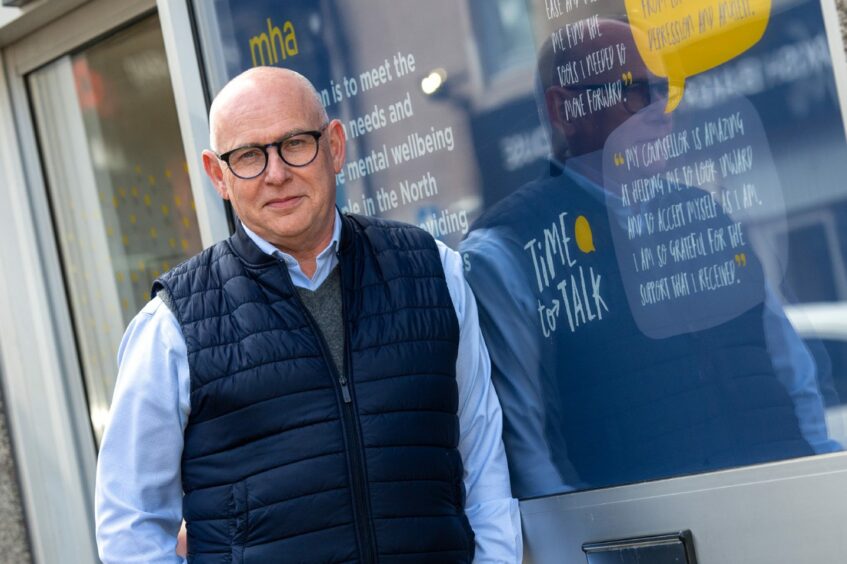When Lewis Capaldi could no longer sing at his Glastonbury concert last month, he got a little help from some friends.
Visibly affected by the Tourette’s that has recently kept him away from live performances, the Glaswegian singer was moved to tears as thousands of fans took over singing duties for the ballad Someone To Love.
It will go down as one of those magical moments at the Somerset festival – a groundswell of love and support for a man whose mental health problems were clear to see.
“You’ve really made me feel at ease,” Capaldi told the audience.
How to tackle the ‘stigma’ of men’s mental health
The positive response to Capaldi’s Glastonbury moment – in the crowd and on social media – has led some to suggest that society is making progress when it comes to talking about men’s mental health.
When he apologised for not being able to sing, and that he will take a break from performing, he received the equivalent of a global group hug.
But is it a sign of progress?
Mental-health advocates in the north-east told the P&J the reaction to Capaldi’s on-stage struggles is to be applauded.
However, they also made it clear that when it comes to talking about mental health, there is still a long road left to travel.
“I think everyone would say [Capaldi] is incredibly brave – which he absolutely is,” says Karen Scaife, whose husband Ross ended his life last year after a Stereophonics concert at P&J Live in Dyce.
“But I don’t like using that phrase because it shouldn’t be brave to be open about mental health it should be normal – just like it is to talk about our sore leg or diabetes for example.
“If people can follow his example it will go a long way to tackling the stigma and empowering other men to feel safe to be open.”
Karen, who is the wellbeing and engagement manager at Aberdeen University and a leading voice in support of men’s mental health, praised Capaldi’s openness.
She said it is “a great example of how we shouldn’t be embarrassed about our mental health and how it doesn’t have to stop us living our life”.
‘I was in tears’
That was exactly how Andy Robertson felt as he watched Capaldi’s performance on Glastonbury on TV from his home in Aberdeen.
“I was in tears,” says Andy, who came close to suicide because of injuries sustained in a bizarre street attack in 2010 by a drunk driver. “Some of the songs, and the tics he had.”
The 36-year-old chef, who was at Capaldi’s Aberdeen concert in January, saw reflected back at him from the Glastonbury stage his own struggles with mental health.
It is a recognition made all the more powerful by Capaldi’s down-to-earth persona.
“The reason that Lewis Capaldi has that effect on people is because he is real,” says Andy, who is setting up a mental health support group for hospitality workers in Aberdeen.
“The man is great ambassador for people struggling. He battled through everything and he gives people hope. If he can do it, everyone can do it.”
‘There should have been some intervention from somebody’
Also watching Capaldi on TV was Graeme Kinghorn, the CEO of Mental Health Aberdeen.
And though he says the Glastonbury crowd showed true sympathy for the singer, his first thought was for the clearly vulnerable man trying hard to give a performance.
“The best outcome for him as an individual would have not to have been on that stage in the first place,” Graeme says.
“What were his management team thinking about, who was advising him and looking out for him? Essentially there should have been some intervention from somebody.”
Graeme adds: “Seeing Lewis struggle so publicly may encourage other men and young men to come forward but the vast majority of men still internalise their emotions and thoughts and are adept at masking any signs that they are struggling and that’s the difference in this case.
“If there were obvious physical signs of problems, intervention would be much easier.
“Until then, it will remain very difficult to ‘move the dial’ within this high-risk category of men aged 18 to 50.”
If you’ve been affected by issues raised in this piece, Samaritans are available to offer support day or night, 365 days a year. You can call them for free on 116 123 or visit samaritans.org to find your nearest branch.




